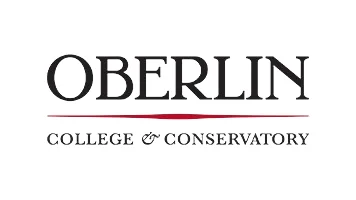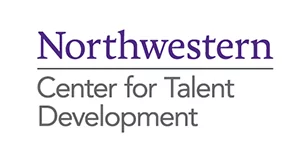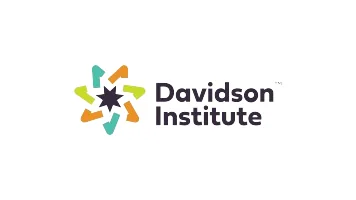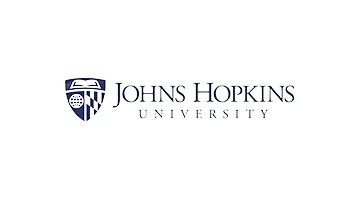The first four Pioneer scholars
In 2012, before Pioneer was Pioneer, four courageous young scholars became pioneers in a new
In 2012, before Pioneer was Pioneer, four courageous young scholars became pioneers in a new academic program that allowed high school students to do independent research under the guidance of professors from top American universities. Two students each participated in the two programs that were offered, in the fields of anthropology and neuroscience. Since then, building on that small beginning, Pioneer Academics has developed an innovative academic system that allows participants to qualify for US college credits. The Pioneer Research Program is now one of the most selective enrichment programs, and has become an internationally respected online research program with 3014 alumni from 58 different countries and regions as of 2020.
Recently, Pioneer checked in with those first four students to see where they were and what they were doing now, and to discuss their time as the first Pioneer Research Scholars. They talked about both their experience when they did their research papers as high school students, and the long-term benefits of their Pioneer experience throughout college and in their present lives.
The following pages include profiles of each of the four original students, including what they are doing now. Their paths are as different as the gifts, talents and interests that they brought to their Pioneer research. As they make clear, Pioneer provided a formative experience for these talented young people, all of whom are making positive contributions to the world through their very different occupations.
Rebecca: A Research Mindset
Rebecca Qian, an American student living overseas, found that her Pioneer Research Program experience completely changed her way of looking at the world. She now has what she calls “a research mindset,” which has been the foundation for her decision-making and way of life since she completed her Pioneer program.
Rebecca chose anthropology from the two research fields that were offered in Pioneer’s first year because “I was very interested in studying how people interact with each other, society, and especially women’s roles.” She remembers her Pioneer Research Program as “a great opportunity for me as a high school student to gain experience into what college level work was like, and it really prepared me” for her next four years of education at the University of Chicago, and also for her current work in machine learning research for Facebook.
Rebecca’s “research mindset” came directly from her Pioneer experience. Some facets of this mindset are a commitment to debate and discussion, being open to new ideas and experiences, staying curious about the world, never being satisfied or complacent about what you know, always questioning and maintaining a degree of skepticism about the most commonly accepted version of events, and being able to let go of ideas that are not working.
And Rebecca’s choice of career came directly from her research mindset. She began her studies at the University of Chicago thinking she would probably major in economics, but her commitment to trying new experiences led her to take some courses in computer science. To her surprise, she really enjoyed them. It took some time to make the decision, but eventually she was able to let go of her original plans and focus on a field that gave her great satisfaction.
Getting from that beginning to her work for Facebook was challenging. She felt far behind the students who had been computer science majors since high school, and “going to robotic summer camps as kids.” But what she lacked in background she made up for in determination and hard work. She caught up with her peers, and “I ended up getting my dream job out of college.”
Being able to describe her dream job helped Rebecca recognize it when it came her way. “I wanted to be working on something that I was very passionate about and where I thought that I could make a positive impact in some aspect of the world. I wanted to be very excited to go to work every day. So that’s what led me to my internship program at Facebook and how I ultimately selected my particular team, which is more focused on research than the day to day operations of the company. I really enjoyed doing research in the Pioneer program and in college and I wanted to continue.”
Rebecca describes her department at Facebook as one that includes both research and implementation. “About 50% of the time we do research and about 50% of the time we’re applying the research.” Her colleagues have a variety of specialties, from engineering to product management, and education from BAs like hers to Ph.Ds. Her experience as a Pioneer Scholar has helped her have confidence in her ability to communicate, collaborate, and discuss ideas as a team member in this diverse community.
At the moment, Rebecca enjoys her work for Facebook, and she also sees the process of developing products from prototype to production as good preparation for the future. She has a vision of some day starting her own company, producing a product that will give a lot of people a lot of value. “I think that a research mindset will take you really far.”
Jasper: Seriously Successful Playfulness
Jasper Wang, from Beijing No.4 Middle School, China, enjoyed his Pioneer Research Program so much that he wanted to replicate the fun he found in that experience for generations of younger learners. He was particularly intrigued by the way the online Pioneer program made it possible for him to form a true mentoring relationship with an American college professor halfway around the world.
Being particularly interested in the social sciences, Jasper participated in the anthropology program offered in Pioneer’s first year. The small cohort discussions and the ability to undertake a research project anywhere were a revelation, and began to spark Jasper’s creativity. He was encouraged to explore his own ideas and to discuss them in the seminar setting. He found the experience of online learning enjoyable, and it helped him discern a direction for his college studies. In particular, the intimate experience of working with one professor and one cohort peer encouraged Jasper to look for a liberal arts college with small classes. He settled on his early decision school, Swarthmore, where he majored in fine arts.
Two aspects of online learning were particularly interesting to Jasper: interactivity and accessibility. Since college, he has worked at developing interactive educational materials that are accessible to students around the world. Accessibility, he thinks, is the real gift that technology has brought to education. His work, he says, is very much “like what Pioneer has been doing in the past years, trying to make the academic experience in college accessible not just to high school students, but also for students all over the world.”
Jasper is Pioneer’s first entrepreneur. He has already formed and sold his own educational technology company. “Technology can help facilitate and promote the educational experience and make it work,” he says. “It’s about making it more interactive.” Jasper is the founder of CodingLand, a company that focuses on providing play-based after-school STEAM (science, technology, engineering, arts, and mathematics) lessons to school children beginning from kindergarten. This business was acquired by another company in January 2020, and Jasper is ready to move on to his next enterprises.
His first step will be a one-year full-time master’s program at Harvard’s Graduate School of Education, focused on Technology, Innovation, and Education. After that, he is planning to take on another master’s program in Computer Science at Penn. And with his new skills and knowledge, “I am planning to pursue AI-related applications in education.”
Presently in Beijing, Jasper is keeping himself busy in a different aspect of his chosen field. “These days I’m translating another book in education, Invent to Learn, into Simplified Chinese. This book is set to be published soon this year by Tsinghua University Press.”
Pioneer helped Jasper find his passion, designing play-based learning opportunities that are fun as well as educational. And Jasper is communicating his passion to new generations of tech-savvy children, a real gift to the world in an era when engaging online education is becoming increasingly essential.
Isabella: A Love of Numbers
Isabella Song was a student at the High School Affiliated to Renmin University of China when she learned about the new Pioneer program. Her interest was in math and science, and so she enrolled in the neuroscience program, the more scientific of the two programs offered in Pioneer’s first year.
Isabella found the experience “mind-blowing.” In high school, the educational model was to learn the material the teachers presented. Working one-to-one with her Pioneer professor, and one-to-two with the professor in her small cohort, Isabella had the new experience of being asked to come up with her own ideas, and to discuss the question “why” when being presented with new information. Even more challenging was being asked to design her own research question, and to devise a way to look for answers.
The concept of research was new to Isabella. She learned through her Pioneer Research Program that research was not just about finding answers to questions, but a way of thinking that could be used to solve many problems in life. She says this understanding was “great preparation for college,” providing an important skill that she used to address a wide variety of topics and subjects. Isabella also credits the research experience with helping her understand how valuable and useful it was to take courses in different fields in addition to her primary fields of interest. Pioneer gave her, she said, “an understanding of the purpose of learning in general.”
In high school, Isabella was “only interested in math or science or economics.” Her liberal arts college required her to take core courses in the humanities, and her Pioneer Research Program had given her the background for understanding why they were important, and how to use them as a foundation for her research-oriented interests. Art courses, for instance, helped her appreciate beauty and think about how to add visual interest to research papers. Writing courses improved her communication skills. When presenting her research, “I need to write down my results so that people can understand.” Before her Pioneer program, she says, she might not have understood that, and could have thought such courses were unimportant to someone interested in math. “So doing Pioneer beforehand really helped me improve my college experience.”
Another important gift Isabella received from her Pioneer program was how her small-group experience influenced her choice of college. She had been thinking about applying to a large university, but found that she wanted instead to attend a smaller college with small classes where she could continue to participate in discussions the way she had done with her Pioneer cohort. She chose Boston College and majored in math and economics. It was such a good fit that after her four-year undergraduate program, she continued on in the Boston College graduate school for a three-year master’s degree program in psychometrics (educational statistics), a specialty not offered at the undergraduate level.
Isabella has now finished her seven years of study and returned to Beijing with her new family. The mother of a newborn son, she is the first Pioneer alum to become a parent. Graduate school, motherhood, and the return to China have taken precedence over employment so far, but Isabella has a confident vision for her future. She knows that her work will be data-related, reflecting her interest in numbers, and will use the knowledge she gained from her college and graduate education. Isabella expects before long to be working as a data analyst or data researcher, once again using the skills she learned through her Pioneer experience.
Allen: From Gap Year to Full Merit Scholarship
Allen Liu, from Zhengzhou, China, was in an unusual situation when he learned about the new Pioneer program. Although he had been accepted into a good program in his home country, he was not able to enroll in his choice of majors. After completing his studies at Zhengzhou Foreign Language School, he decided to spend a gap year trying to acquire the qualifications he needed for acceptance into an American university instead. The Pioneer program, which enabled him both to do independent research and to have the experience of studying with an American college professor, seemed made in order to help him accomplish his goals. And it worked beyond anyone’s expectations. Allen is sure that his Pioneer research paper played a key role in his not only being accepted, but also—a very rare experience for a foreign student at a state university—being offered a four-year scholarship at UNC Chapel Hill.
Allen describes his time as a Pioneer Scholar as a “fresh, exciting experience” with many valuable aspects that served him well in college and after. He became familiar with US research styles. He learned to work collegially with his professor and small cohort, and was encouraged to think for himself, which he found “intellectually stimulating.” He became adept at using library resources.
Using library resources was key to Allen’s successful completion of his research. Being “more a scientific than a liberal arts person,” Allen participated in Pioneer’s neuroscience program, the more scientific of the two first-year programs. Framing a research question that could be studied adequately by relying on information he could glean just from journal articles, without access to a lab environment, was a major challenge. Allen had to learn the logic of a different language to do his keyword searches (Chinese and English work differently for computer searches, he says). Once his materials were collected, he had to rely on “thought experiments” for his conclusions, analyzing what various possible results of his hypothetical experiment might signify.
These skills traveled with Allen to college and on to his present work. In his fields of economics and business, lab experiments are rarely necessary, but the ability to frame a focused question, gather materials, and analyze results is essential. At UNC, Allen majored in statistics and economics. Having learned to think “in a systematic way” through his Pioneer program helped him approach “big projects” in college. He knew which questions to ask at the beginning of a project: “What is your problem? What is your motivation? What is your methodology? Where does your data come from? What is your result? What are the implications for the future?”
After his four-year program at UNC, Allen went on to Carnegie Mellon for an eighteen-month M.S program in financial engineering, which gave him math and programming skills and a degree he needed to pursue his interest in the financial field. He is now working as a financial quant, a career which, he says, regularly requires him to formulate his own questions and do his own work of research and analysis. And he credits Pioneer with providing him with the tools for his success. Pioneer “encouraged creativity and independent thought,” and taught him the skill of “thinking about how to solve problems.”
Allen’s present position as a Senior Associate for JP Morgan in New York City was as unexpected as his UNC scholarship. At the moment it is “working well” for him, and he has no plans to change. However, he is open in the future to exploring new aspects of the financial field in the US or China, or anywhere else where he can continue to pursue the intellectually stimulating work that is so important to him.
Related News
Online Info Session
Doing research is commonplace. How do you choose the research opportunity that makes a difference?
Join us for a free online info session to learn about Pioneer
At Pioneer Co-Curricular Summit
Check exclusive sharings
From directors of prestigious programs






